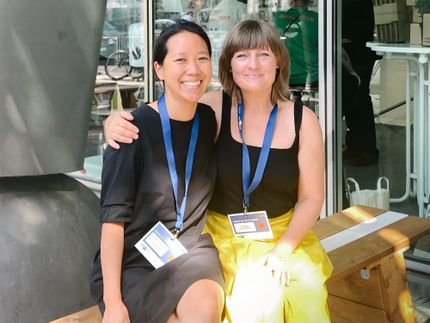Huntsman Polyurethanes joins Bark Biorefinery Consortium
Huntsman polyurethanes has been invited to join the Bark Biorefinery Consortium Project, a four-year joint venture between academia and industry that is exploring how best to extract value from tree bark that is a forest residue left over by the lumber industry.
The collaborative research program has a total budget of $5.25 million (CAD) and is being funded by the Province of Ontario together with participating institutions and industry partners. As part of consortium activities, representatives from Huntsman’s CoreScience unit in the United States will work closely with scientists from the University of Toronto, who are leading the project.
Leveraging combined academic and commercial know-how, the Huntsman team will focus on one core element of the initiative: converting bark into value added intermediates for polyurethane to achieve improved properties and more renewable content. Previous research in this area has shown that incorporating bark products into other polymers can result in improved thermal stability and fire resistance, as well as improved adhesive properties.
Project leaders at the University of Toronto, Professor Ning Yan and Mohini Sain, said: “Next generation bark-based additives are expected to further advance green developments in the polyurethane industry. We are delighted to be working with Huntsman on this project”
Niek van Wiechen, Global CoreScience Director at Huntsman Polyurethanes, said: "When the University of Toronto invited Huntsman to join the Bark Biorefinery Consortium, we leapt at the chance. The program has many parallels with our own corporate research and development (R&D) strategy. Huntsman is committed to developing renewable technologies that increase the natural content in our products, provide cost effective solutions for our customers, and offer significant sustainability benefits. This is a great opportunity to turn forest residue into valuable commercial products. We look forward to sharing our knowledge with consortia colleagues and exploring new avenues in polyurethane chemistry with some of the best academic minds in the world.”
Most read news
Other news from the department science

Get the chemical industry in your inbox
By submitting this form you agree that LUMITOS AG will send you the newsletter(s) selected above by email. Your data will not be passed on to third parties. Your data will be stored and processed in accordance with our data protection regulations. LUMITOS may contact you by email for the purpose of advertising or market and opinion surveys. You can revoke your consent at any time without giving reasons to LUMITOS AG, Ernst-Augustin-Str. 2, 12489 Berlin, Germany or by e-mail at revoke@lumitos.com with effect for the future. In addition, each email contains a link to unsubscribe from the corresponding newsletter.
Most read news
More news from our other portals
Last viewed contents
Sugar + weed killer = potential clean energy source - A spoonful of herbicide helps the sugar break down in a most delightful way.
Waters Corporation Ships Empower Chromatography Software
Procter & Gamble Collaboration Identifies New Gene Targets
Dow Completes First-Phase Expansion of Production Facility for LUMATION Light-Emitting Polymers (LEPs)
Yara to sell its minority position in Rossosh
LION bioscience Enters Cheminformatics Market with LeadNavigator(TM)
ORNL graphite foam technology licensed to LED North America
Abgenix And Sangstat Receive Orphan Drug Designation For Abx-Cbl For Treatment Of Acute Graft Versus Host Disease


























































